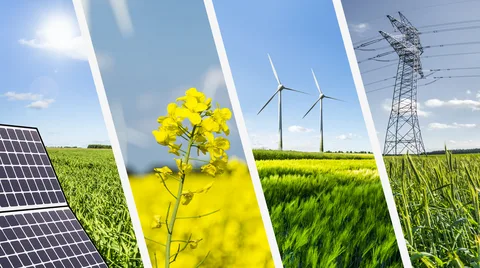Introduction
The Renewable Energy Market hhttps://www.marketresearchfuture.com/reports/renewable-energy-market-1515as become a cornerstone of the global energy transition, offering sustainable alternatives to fossil fuels and reducing greenhouse gas emissions. Encompassing technologies such as solar, wind, hydro, biomass, geothermal, and tidal energy, the market is experiencing rapid growth due to policy support, environmental awareness, and technological progress. As nations commit to net-zero carbon targets, renewable energy has evolved from an alternative to a necessity in the global energy mix.
Market Drivers
Key drivers of the renewable energy market include the urgent need to address climate change, government regulations promoting clean energy, and international agreements such as the Paris Climate Accord. Decreasing costs of solar panels, wind turbines, and storage technologies have made renewable energy competitive with fossil fuels.
Rising energy demand in emerging economies and the growing role of decentralized power generation also drive adoption. Moreover, the integration of digital technologies like smart grids, AI, and IoT enhances efficiency, reliability, and management of renewable energy systems.
Market Challenges
Despite strong growth, the renewable energy market faces challenges such as intermittency, storage limitations, and grid integration complexities. While costs have declined, initial investment requirements for large-scale projects remain high.
Geopolitical factors, supply chain disruptions for critical minerals, and land-use conflicts also pose hurdles. Furthermore, policy uncertainty in some regions affects investor confidence and long-term project viability.
Opportunities
The renewable energy market presents significant opportunities in offshore wind, floating solar, hydrogen production, and hybrid systems that combine multiple renewable sources with storage solutions. Technological innovation, particularly in battery storage and grid management, will further unlock growth potential.
Decentralized and community-based renewable energy systems provide opportunities for rural electrification in developing nations. Corporate power purchase agreements (PPAs) also offer a growing market as companies commit to 100% renewable energy goals.
Regional Insights
- Asia-Pacific leads the renewable energy market, with China, India, and Japan investing heavily in solar and wind power.
- Europe has made strong progress, particularly in offshore wind, hydropower, and advanced energy storage.
- North America is witnessing accelerated renewable integration, driven by federal policies, state-level initiatives, and rising corporate demand.
- Middle East & Africa are focusing on large-scale solar projects and hybrid systems to diversify away from oil dependency.
Future Outlook
The Renewable Energy Market is expected to dominate the global power sector by 2050, with significant growth in solar and wind energy. Emerging technologies such as green hydrogen, tidal energy, and advanced storage solutions will further expand the scope. Governments, corporations, and consumers aligning toward sustainability will ensure continued expansion.
Conclusion
The Renewable Energy Market represents the backbone of global decarbonization efforts. While challenges remain, innovation, policy support, and market competitiveness position renewable energy as the foundation of the future energy economy.

